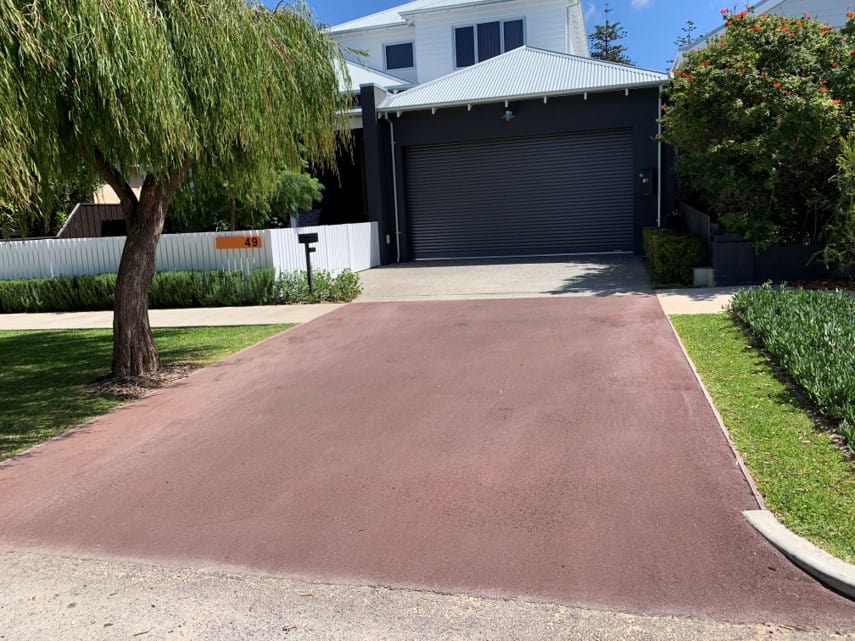For property owners and business operators, what can and cannot be claimed as a tax deduction can be confusing. When it comes to repairing property, knowing whether you can claim certain costs can save you a significant amount of money.
So, can you claim asphalt driveway costs on your tax return?
Let’s dive into the various tax rules surrounding these expenses to help you minimise both mistakes and lost opportunities to save. Please note that this article is general and current at the time of writing but that all financial and tax related advice should be sought from your professional accountant.
Understanding Tax Deductions in Australia
Tax deductions in Australia are designed to help individuals and businesses reduce their taxable income by ‘deducting’ certain eligible expenses.
The Australian Tax Office (ATO) provides comprehensive guidelines on what can and cannot be claimed, and one important distinction is whether the expense is personal or business in nature. When it comes to asphalt driveway tax deductible expenses, its eligibility is likely to come down to this same distinction.
One important point to note here is that the ATO is the authoritative source for all current information on deductions. Taxation laws do change from time to time, so it is important that you defer to their official communication for the most up to date rules.
Driveway Costs Tax Claim – Australian Regulation
As outlined above, the deductibility of an asphalt driveway’s repair costs will likely come down to what the property is used for.
If the driveway belongs to a residential property that is rented out, you may indeed be able to claim the cost of it as a capital works deduction. How much can be claimed? Normally the rate of capital works deductions is somewhere between 2.5% to 4% per year, depending on when the construction began and the specifics of the type of work carried out.
If the asphalt driveway costs are related to business premises, then the cost may be claimable as either a maintenance expense or a capital expense. What does this depend on? Whether it is considered a repair – i.e., if the driveway needs to be repaired – or rather just driveway costs related to improvement only.
Unfortunately, tax deductions for driveways belonging to residential property or on property used for personal purposes only are not available.
What Constitutes Driveway Improvement?
If the work on the asphalt driveway provides a completely new utility or aspect to the property, or if it increases the value of the property, then it will be considered an ‘improvement’ for tax purposes.
Improvements cannot be deducted immediately, like repair or maintenance work can, but can only be claimed over time as the property depreciates. These deductions for capital works apply to more than just asphalt driveways. They can include everything from buildings and extensions, to building alteration, structural improvements, and even earthworks for environmental protection purposes.
Compare this to repairs and maintenance which the ATO defines are being required from a functionality point of view and therefore may be more eligible for immediate deductions.
What Constitutes Personal Use?
The tax office generally defined personal use as activities that are for your own benefit, family, or leisure in contrast to those that are related to conducting business or generating income.
If your asphalt driveway belongs to a property that is neither rented out nor is part of a business premises, chances are costs related to its repair, maintenance or improvement are considered personal use and therefore not eligible for tax deductions.
How to Claim Driveway Costs on Your Tax Return
To claim your asphalt driveway costs on your tax return, you will need to follow these steps.
Determine the type of works
Make sure you know whether the expense is a repair/maintenance job or a capital works expense. This is important because repairs are generally deductible immediately, while capital works can only be deducted as it depreciates over time.
Document and file everything
The ATO does conduct audits regularly. So, make sure you keep the proper documentation, such as receipts and invoices, related to the asphalt driveway costs. The more organised your filing system the few problems you will have down the line.
Consult a professional
Tax accountants are professionals in providing tailored advice for your specific situation and to maximise the return for your particular situation. If the circumstances are complex, it is even more important to seek professional advice to ensure that you comply with all regulations.
Invest in Quality Asphalt for Your Driveway
A high-quality asphalt driveway is necessary for many reasons. For one thing, it ensures that the installation costs are economically effective due to its durability and lowered maintenance requirements.
Secondly, good quality asphalt driveways increase the value of a property. Asphalt driveways that last longer look better and function better which will help your property fetch a higher price should you choose to sell in the future.
Explore the Asphalt Services of Claremont Asphalt
The team here at Claremont Asphalt are dedicated to providing premier asphalt related services throughout Perth.
Why choose our team?
We’re experts in all things asphalt and know how to source the best quality materials and ensure the best quality installation so that your driveway will last longer and look better.
We stand behind our commitment to quality and, as a family-owned and operated company, we focus on providing bespoke, personable solutions to each and every client.
Why not contact Claremont Asphalt today to discuss all things asphalt driveway tax deductibility or to arrange your free custom quote?

